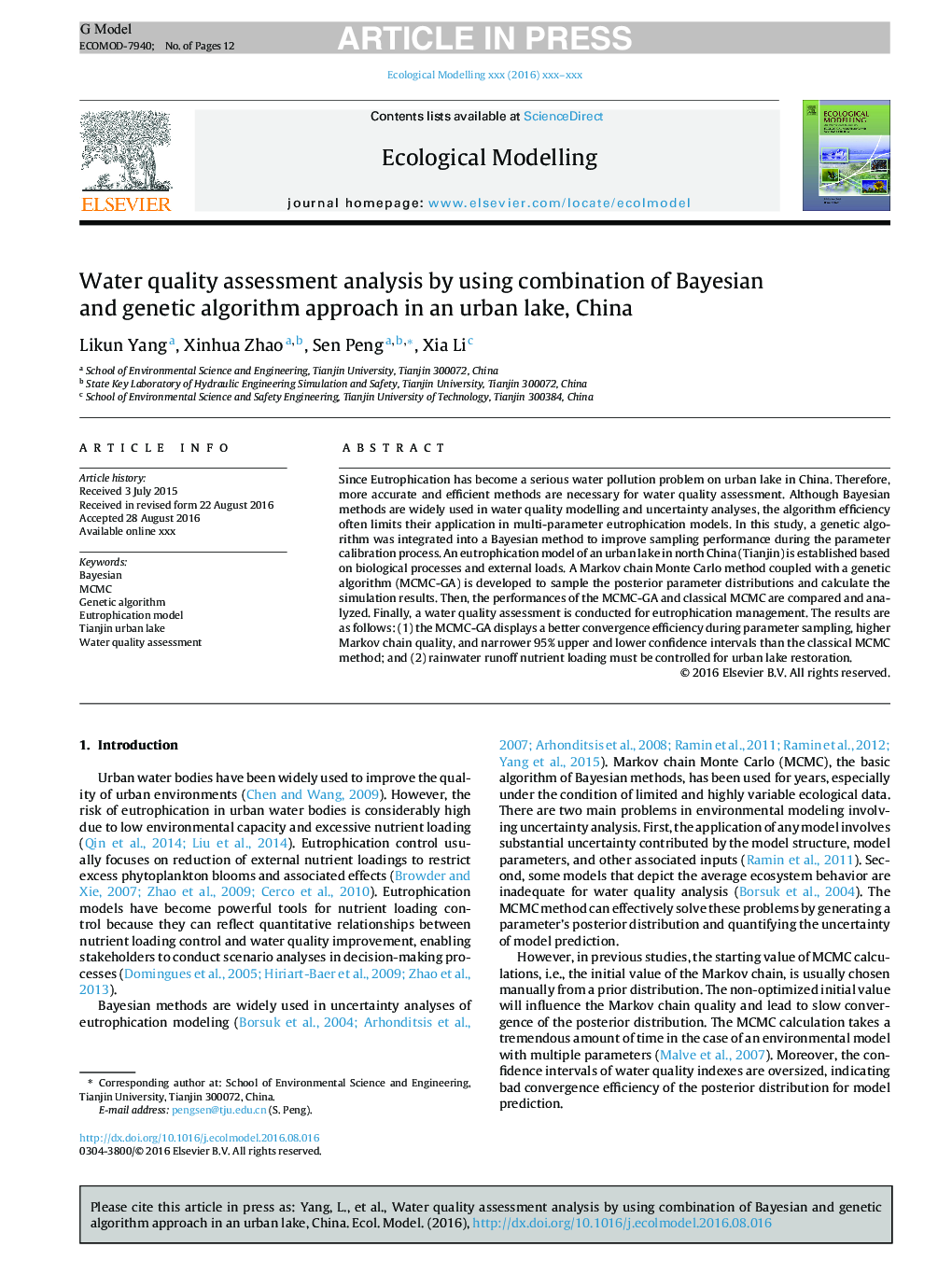| کد مقاله | کد نشریه | سال انتشار | مقاله انگلیسی | نسخه تمام متن |
|---|---|---|---|---|
| 6296027 | 1617408 | 2016 | 12 صفحه PDF | دانلود رایگان |
عنوان انگلیسی مقاله ISI
Water quality assessment analysis by using combination of Bayesian and genetic algorithm approach in an urban lake, China
ترجمه فارسی عنوان
تجزیه و تحلیل کیفی آب با استفاده از ترکیبی از روش بیزی و الگوریتم ژنتیک در دریاچه شهری، چین
دانلود مقاله + سفارش ترجمه
دانلود مقاله ISI انگلیسی
رایگان برای ایرانیان
کلمات کلیدی
موضوعات مرتبط
علوم زیستی و بیوفناوری
علوم کشاورزی و بیولوژیک
بوم شناسی، تکامل، رفتار و سامانه شناسی
چکیده انگلیسی
Since Eutrophication has become a serious water pollution problem on urban lake in China. Therefore, more accurate and efficient methods are necessary for water quality assessment. Although Bayesian methods are widely used in water quality modelling and uncertainty analyses, the algorithm efficiency often limits their application in multi-parameter eutrophication models. In this study, a genetic algorithm was integrated into a Bayesian method to improve sampling performance during the parameter calibration process. An eutrophication model of an urban lake in north China (Tianjin) is established based on biological processes and external loads. A Markov chain Monte Carlo method coupled with a genetic algorithm (MCMC-GA) is developed to sample the posterior parameter distributions and calculate the simulation results. Then, the performances of the MCMC-GA and classical MCMC are compared and analyzed. Finally, a water quality assessment is conducted for eutrophication management. The results are as follows: (1) the MCMC-GA displays a better convergence efficiency during parameter sampling, higher Markov chain quality, and narrower 95% upper and lower confidence intervals than the classical MCMC method; and (2) rainwater runoff nutrient loading must be controlled for urban lake restoration.
ناشر
Database: Elsevier - ScienceDirect (ساینس دایرکت)
Journal: Ecological Modelling - Volume 339, 10 November 2016, Pages 77-88
Journal: Ecological Modelling - Volume 339, 10 November 2016, Pages 77-88
نویسندگان
Likun Yang, Xinhua Zhao, Sen Peng, Xia Li,
